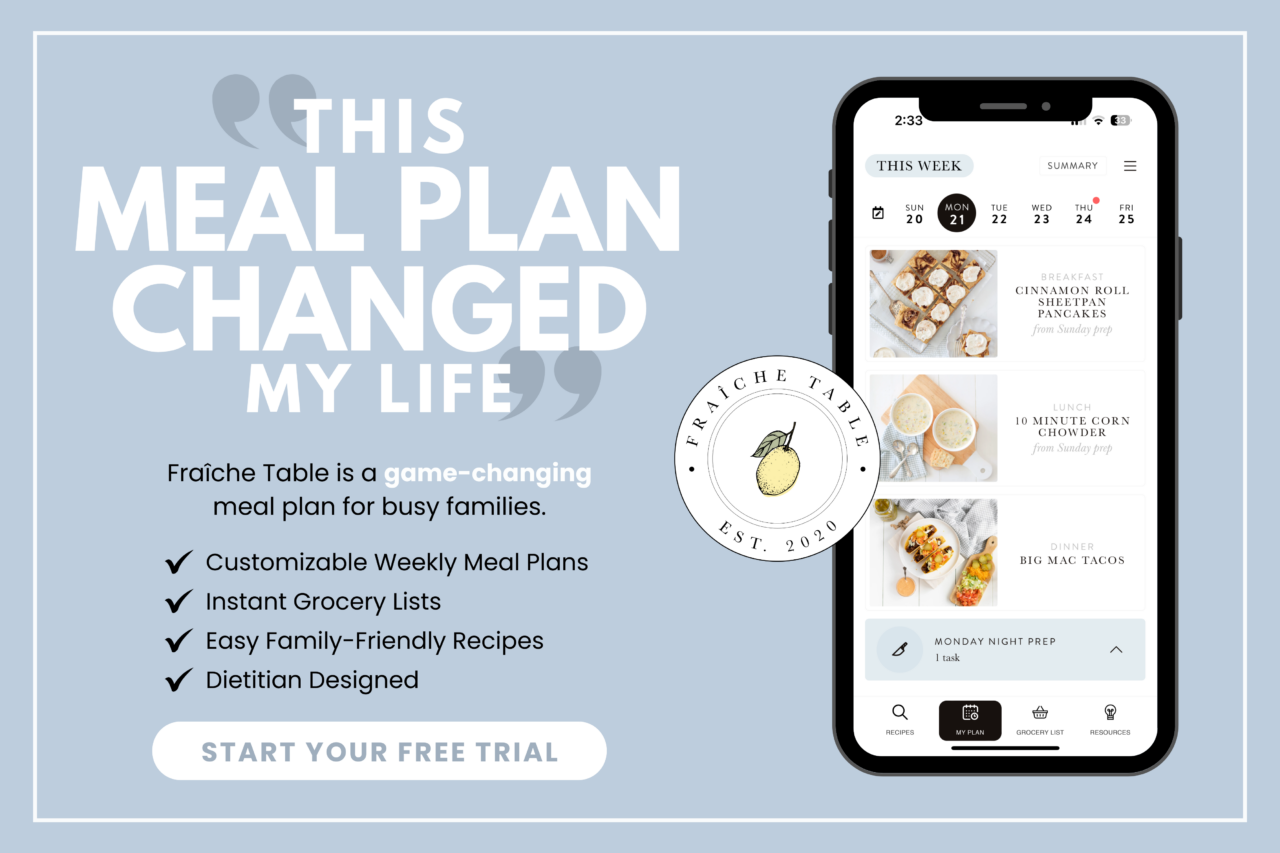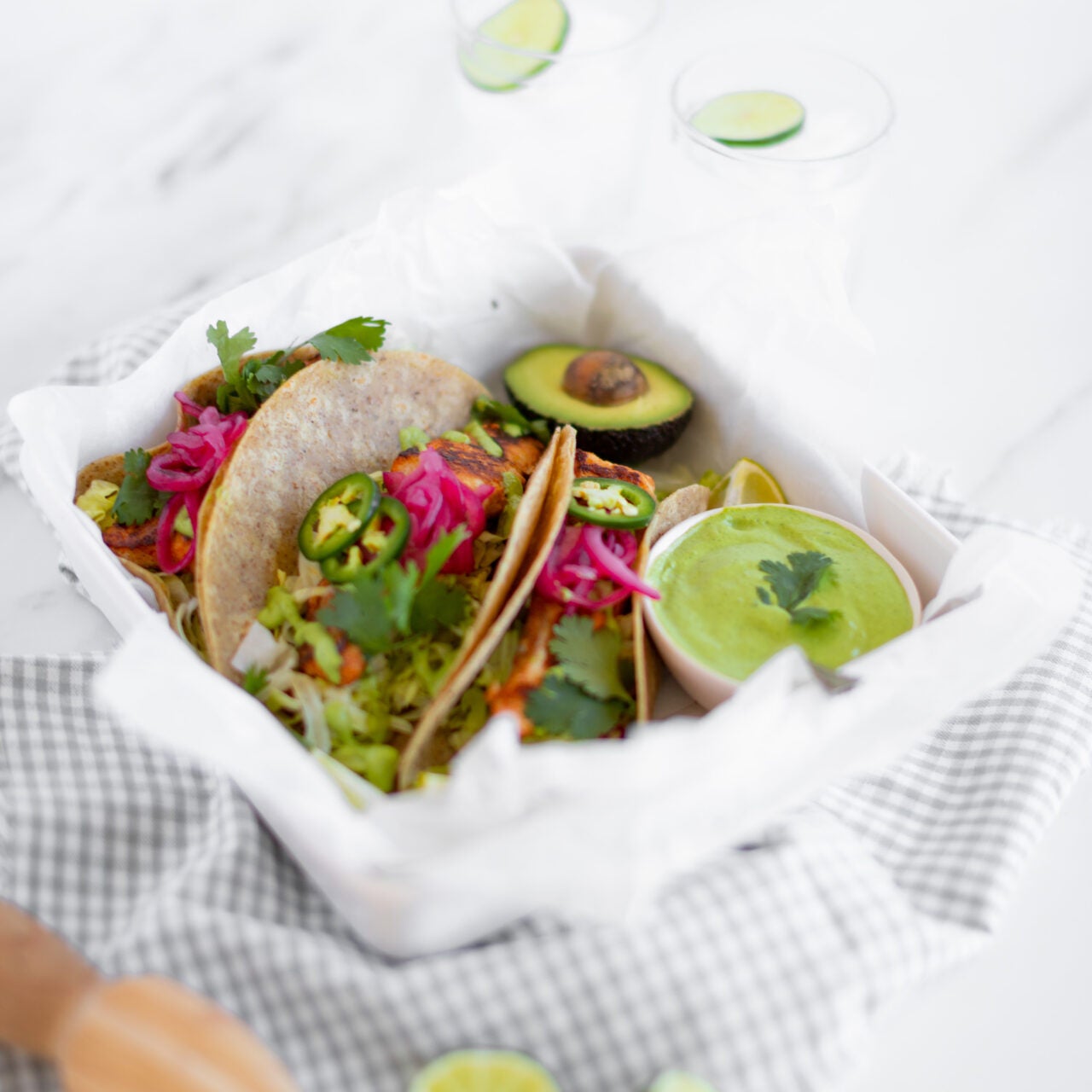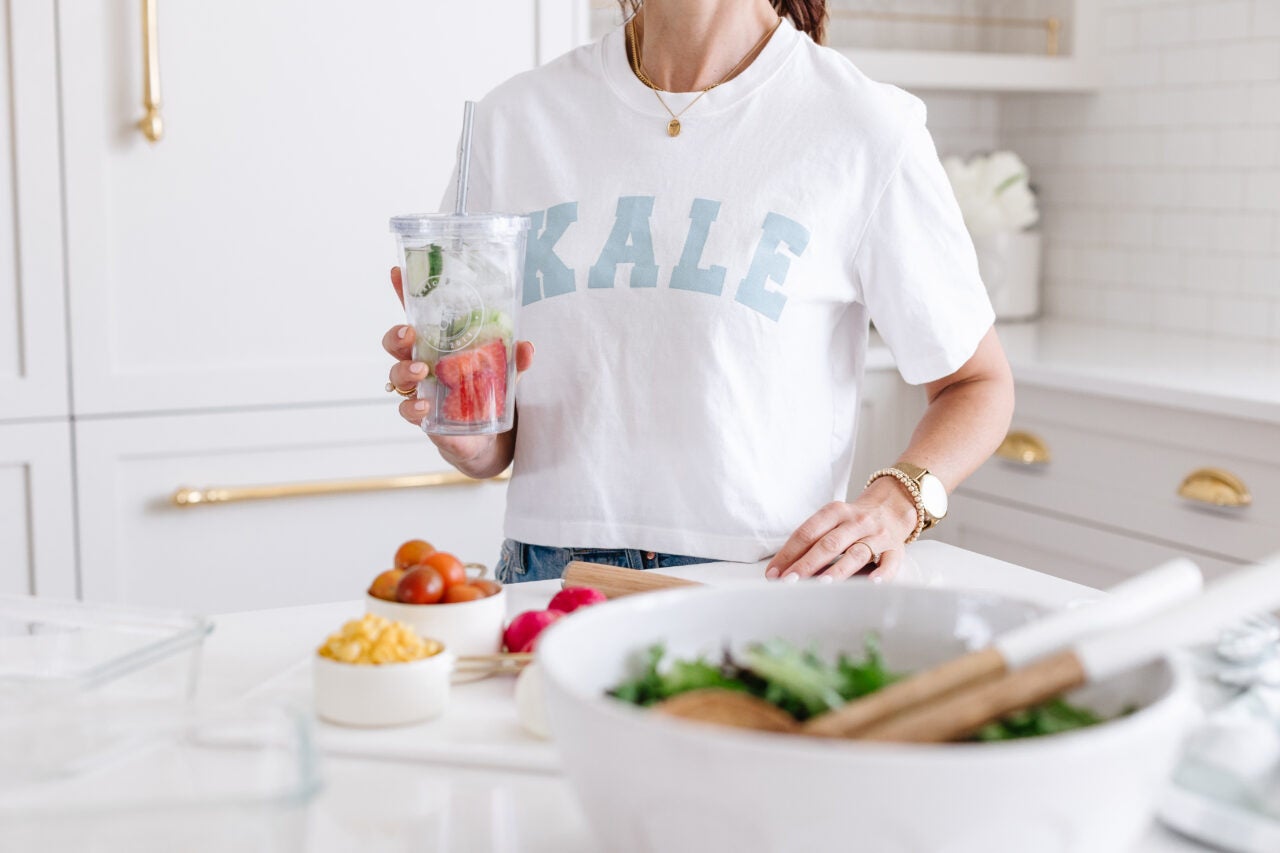When most of us think about menopause, we picture hot flashes and mood swings. But there’s so much more happening behind the scenes that no one really talks about.
Whether you’re in perimenopause (those transition years leading up to menopause) or you’ve already reached it, this phase brings real changes. With perimenopause starting as early as your late 30s, most women don’t realize what’s happening until they’re already in it.
I want to change that. Let’s talk about what your body actually needs during this time, and how to support it without turning your life upside down. In this article I will cover 4 essential menopause nutrition facts that every woman should know.
Nutrition for Stronger Bones
One of the many roles of estrogen is to help protect your bone strength. When those levels decline during menopause, bone loss can speed up, which can lead to osteoporosis down the road.
Part of the solution? Calcium. After menopause, the recommendation for calcium jumps from 1000mg to 1200mg per day. Before you reach for supplements, try getting more through food first.
Calcium-rich foods to work into your day:
- Dairy like yogurt, milk, and cheese
- Fortified plant milks (always check the label!)
- Tofu made with calcium sulfate (called calcium set)
- Canned salmon or sardines with bones
- Leafy greens like kale, bok choy, and collards
- Almonds and chia seeds
One of my favourites: Add kale and Greek yogurt to your morning smoothie for a calcium boost that tastes good. Click HERE to browse the Fraîche Table smoothie recipes.

If you are taking a calcium supplement (I typically recommend Calcium Citrate), here are a couple of tips:
- The body absorbs calcium best in doses of ≤500 mg at a time. If you need more, split it into morning/evening doses.
- Vitamin D improves calcium absorption — often supplements include both.
- Avoid taking calcium at the same time as iron or thyroid medication (they interfere with absorption).
Don’t Skimp on Protein
As we age, we naturally lose muscle mass in a process called sarcopenia. Adequate protein, paired with resistance training, helps preserve and build that muscle. Plus, getting enough protein supports your metabolism, blood pressure, and bone health.
Aim for 20-30 grams of protein per meal to maintain muscle and keep your energy steady throughout the day.
Simple protein add-ins: each of these has roughly 20g of protein
- ¾ cup plain Greek yogurt (2%)
- 3 hard-boiled eggs
- 1 cup cooked lentils
- 1 scoop protein powder
- 1 serving (75g) chicken breast
My go-to shortcut: Use THIS high-protein recipe filter on Fraîche Table when you need easy meals that help you hit your protein goals.

Keep an Eye on B12
As we age, our ability to absorb vitamin B12 naturally declines. Low levels can show up as fatigue, brain fog, or even changes in mood. That’s why, after age 50, experts recommend getting B12 from fortified foods (like cereals or plant milks) or from a daily supplement.
The recommended intake for women is 2.4 micrograms per day (ages 14 and up).
Here are some foods rich in vitamin B12:
- Red meat (ie: beef)
- Fish
- Fortified breakfast cereals
- Dairy like yogurt, milk, and cheese
- Fortified plant-based milks
Talk to your doctor or dietitian about testing your levels or adding a supplement to your routine.
Going plant-based? Since B12 is only naturally found in animal products, supplementation becomes especially important.

Balance Blood Sugar
Sick of dealing with the pesky mood swings of menopause? Yeah, me too. A great way to help support balance in mood, energy, and cravings is through a more stable blood sugar. A drop in estrogen during menopause can contribute to higher blood sugar levels, since estrogen plays a key role in supporting insulin sensitivity — the body’s ability to respond to insulin, the hormone that regulates blood sugar.
How to Support Your Body’s Balance (Without Cutting Carbs)
- Pair protein, healthy fats, and fiber at each meal for a hunger-crushing combo to keep you feeling full longer and help stabilize energy and blood sugar
- Choose complex carbs over refined ones
- Examples: oats, quinoa, beans, lentils, whole-grain bread/pasta
- Avoid excess refined carbs and added sugars by making simple swaps
- Swap Cheerios or Rice Krispies with oatmeal
- Make your own granola bars with whole ingredients

The Bottom Line
Menopause is a natural stage of life — and while it brings change, it doesn’t have to be overwhelming. By prioritizing nutrients like calcium, protein, and B12, and keeping blood sugars steady, you can feel strong, supported, and in control from the inside out.
And if you need help putting it all together? Fraîche Table is filled with balanced, dietitian-designed recipes that support your protein needs, calcium intake, and daily energy so you can spend less time stressing over nutrition and more time feeling good in your body.
Start your free 10-day trial HERE and get recipes that support you at every stage

Resources:
Basina, M. (MD). Healthline. Osteoporosis, Bone Health, and Menopause, 2024. https://www.healthline.com/health/menopause/osteoporosis
Health Canada. Dietary Reference intakes Tables: Reference values for vitamins, 2023. https://www.canada.ca/en/health-canada/services/food-nutrition/healthy-eating/dietary-reference-intakes/tables/reference-values-vitamins.html#tbl3
HealthWise. Menopause and Perimenopause, 2022. https://www.healthlinkbc.ca/healthwise/menopause-and-perimenopause
Meacham, J. (PhD, RD, CSCS). Healthline. 10 Science-Backed Reasons To Eat More Protein, 2025. https://www.healthline.com/nutrition/10-reasons-to-eat-more-protein
National Institute of Health. Vitamin B12: Dietary Supplements, 2025. https://ods.od.nih.gov/factsheets/VitaminB12-HealthProfessional/#h4
National Institute of Health. What Is Menopause? 2024. https://www.nia.nih.gov/health/menopause/what-menopause
Tariq, B., et al. Women’s knowledge and attitudes to the menopause: a comparison of women over 40 who were in the perimenopause, post menopause and those not in the peri or post menopause. BMC Women’s Health 2023;23(460). https://pubmed.ncbi.nlm.nih.gov/37648988/
Wyne, K. (MD, PhD). Ohio State Health. The link between menopause and diabetes, 2025. https://health.osu.edu/wellness/exercise-and-nutrition/link-between-menopause-and-diabetes

